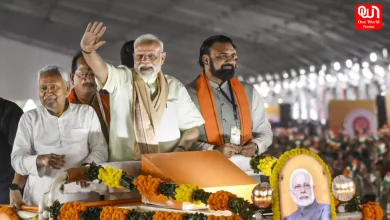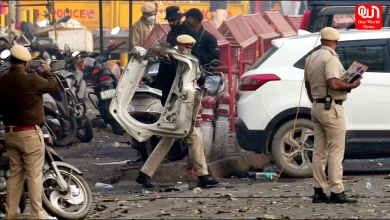Hijab Ban: 50% of Muslim students left Govt Colleges in this state, know why?

Hijab Ban: Karnataka Government ban on Hijab, Muslim students shifted to Private Colleges
Following the Karnataka government’s ban on hijabs in educational institutions, many Muslim students have shifted to private colleges from government colleges. According to the data, which Indian Express obtained, 1,296 kids enrolled in Class XI (also known as Pre-University College PUCL in Karnataka) in the academic year 2021–2022. The number was 1,320 in 2022–2023.
For the academic year 2021–2022, 388 Muslim students have enrolled on PUCL at government pre-university colleges in Udupi. Only 186 Muslim students were accepted into government colleges in 2022–2023.
In Udupi, 91 Muslim female students were enrolled on PUCL in government institutions, compared to 178 in 2021–22, and Muslim male students’ enrollment fell from 210 to 95, demonstrating a gender divide.
Read More- Does Banning Burqa & Hijab in educational institutes count as disruption of freedom of religion?
In contrast, there has been an increase in Muslim students enrolled in the district’s private (or unfunded) pre-university colleges. In 2022-2023, 927 Muslim students registered in PUCL’s unaided institutions, up from 662 in 2021-2022. Muslim boys’ admissions have increased from 334 to 440, and Muslim
Hijab Row: Double Blow For Muslim Girls
When the #HijabBan was introduced in Karnataka, this ban was a deadly double blow for Muslim girls as already their school attendance was lower than Hindu counterparts!!!@VigneshJourno argues in February 2022 with data analytics pic.twitter.com/rJ3oxfBqDC
— Muslim Spaces (@MuslimSpaces) December 29, 2022
One such is Salihath PU College in Udupi. According to the private institution, 57 Muslim girls were enrolled in Class 11 (PUCI) in 2022–2023 compared to 30 in 2021–2022.
According to Government surveys In higher education, Muslim women’s GAR (Gross Attendance Ratio) increased from 1.1 per cent in 2007–08 to 15.8 per cent in 2017–18. The percentage of Muslim women between 18 and 23 enrolled in college in this context is known as the GAR.
“The enrollment of Muslim girls in our PU college has almost doubled for the first time. This is a testament to how the hijab issue has impacted them personally and academically,” the newspaper quotes Aslam Haikady, administrator of Saliath Group of Education.
According to Habeeb Rehman, the principal of Al Ihsan PU college, another private institution, told Indian Express, “The trend in boys, too, maybe because parents want them to stay away from any agitation on Hijab. Considering the communication and politicisation of the Hijab in government PU colleges in Udupi, parents may have decided to ensure they focus on education and discipline in private PU colleges this academic year.”
According to admissions data, Udupi is the only district in Karnataka where the percentage of Muslim female students enrolled in government PUCs has not reached double digits.
Muslim students in Karnataka have been protesting the government’s discriminatory decision to outlaw the Hijab in educational settings, claiming it violates their right to the freedom of religion provided by the Indian constitution.
Muslims in the country have claimed that these attacks on Muslim symbols and practices are a part of a bigger Hindutva goal to impose majoritarian beliefs on the 200 million Muslims in the nation.
A group of petitions filed by Muslim girls enrolled in pre-university colleges in Udupi seeking the right to wear the Hijab in class on March 15, 2022, were rejected by the Karnataka High Court in a split decision in October of last year.







